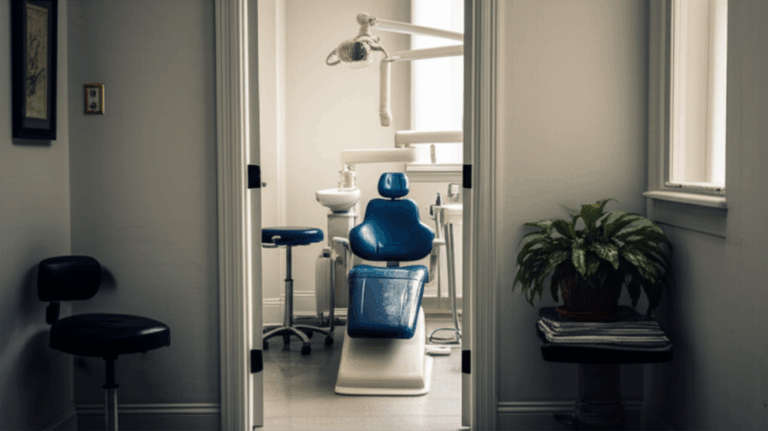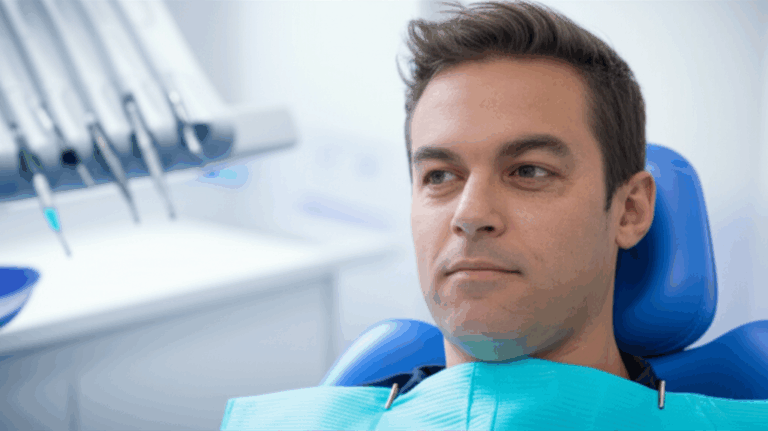
Are Dentists Primary Care Providers? Understanding Their Role in Your Overall Health
Introduction: More Than Just Teeth — How Dentists Look After Your Health
Maybe you’re wondering: are dentists primary care providers? Good question. Most people go to the dentist for cleanings or toothaches. But then the dentist asks about your blood pressure, medicine, sleep, or even your stress. Why?
Here’s the short version: Dentists usually aren’t called Primary Care Providers (PCPs). But they do a lot in keeping you healthy by preventing problems, finding things early, and working with your doctor. Your mouth and body are connected. That’s real — proven by research and what happens in the clinic.
Table of Contents
- Are Dentists Primary Care Providers?
- What Does “Primary Care” Mean?
- How Your Mouth Shows Whole-Body Health
- What Dentists Catch at Your Checkups
- Why Dentists Aren’t Called PCPs
- How Doctors and Dentists Work Together
- Home Care vs. Professional Care
- Who Gains Most with “Dentist-as-Health-Partner”?
- Costs and Insurance
- Simple FAQs
- Real-Life Stories
- How Dentists Help with Repairs
- How to Make Your Visits Safer & Smarter
- Special Things Dentists Think About
- Public Health and the Bigger Picture
- Quick At-Home vs. Dentist Guide
- Who Needs Which Treatments?
- Your Dental Team: Who Does What
- Materials & Technology
- Your Main Takeaways
- Useful Organizations
Are Dentists Primary Care Providers?
Here’s a straightforward answer. No, dentists aren’t marked as PCPs under most health rules. PCPs (like family doctors or nurse practitioners) take care of wide health problems, send you to other doctors, and offer more general care. Dentists are licensed to treat teeth and mouths — a different kind of training, and different insurance.
But — in your dental chair, what happens? Your dentist checks for mouth cancer. Looks at your gums for signs that might link up with diabetes or heart disease. Goes over your health history. Watches for medicines that dry your mouth. Spots high blood pressure. Gives advice on smoking, drinking, food, sleep, and stress. That’s stopping problems before they start. That’s first-line help.
So, think of your dentist as a key part of your whole health team, even if they’re not your main doctor.
What Does “Primary Care” Mean?
Let’s keep it simple. Experts say primary care means:
- Easy to get: No big hoops to jump through.
- Ongoing: They see you again and again.
- Covers a lot: Can handle common problems, and knows when to send you somewhere else.
- Coordinates: Brings in specialists as needed.
Family doctors, internists, pediatricians, and nurse practitioners usually do this stuff. Dentists mainly take care of the mouth. But — many people see their dentist more often than their main doctor. That gives dentists a great spot to find and prevent health problems early.
How Your Mouth Shows Whole-Body Health
Your mouth is like a window to your body. What happens in your mouth can affect, or show signs of, other problems. Here are some common ways this shows up:
- Gum disease and diabetes: Bad gum problems make blood sugar harder to control. Treating gums can actually help manage diabetes.
- Gum disease and heart health: Some mouth bacteria can get into your blood and raise your heart or stroke risk.
- Pregnancy: Serious gum disease is linked to early births or small babies. Dental care is helpful and safe during pregnancy.
- Oral cancer and HPV: Dentists look for strange spots in the mouth, sometimes tied to HPV. Early finds mean better outcomes.
- Autoimmune problems: Certain diseases make your mouth dry or give you sores.
- Sleep problems and jaw pain: Dentists look at your jaw and airway, and can spot signs of sleep apnea or nighttime grinding.
- Bone thinning (osteoporosis): Changes in your jawbone might show you need a bone scan.
- Vitamin problems: A sore tongue or mouth can mean you’re low in B12 or iron.
This isn’t just extra credit. It’s at the heart of good modern dental care.
What Dentists Catch at Your Checkups
You visit your dentist every six months, or more. That’s a big chance to keep you healthy. Here’s how:
Regular screenings:
- Mouth cancer: The dentist checks your tongue, cheeks, and throat for early signs.
- High blood pressure: Many offices check your pressure every time, especially before local anesthesia. A lot of people find out they have high blood pressure this way.
- Hints of diabetes: Bleeding gums, slow healing, dry mouth — dentists notice and can get you to test your blood.
- Sleep apnea risk: Signs like tongue marks or big tonsils may mean you snore too much or stop breathing at night. Dentists refer you for sleep checks.
- Medicines: Dentists look at all your meds. Some dry your mouth or impact bleeding.
- Growths from HPV: Regular checks can pick up risky changes early.
- Autoimmune flags: Sores or huge cavities can point to problems outside the mouth.
Health talks and coaching:
- Quitting tobacco: Lowers your chance of cancer and gum problems.
- Alcohol: Less is better for your mouth and your sleep.
- Food: Eat less sugar, more real foods.
- Stress: Helps with jaw pain and better sleep.
- Cleaning skills: Learn to brush and floss right.
- Antibiotics: Only used when needed — too many cause new issues.
Emergencies:
Dental infections can turn dangerous. The dentist treats pain, swelling, and knows when things might be life-threatening. Offices are set up for infections, safe anesthesia, and quick action if anything goes wrong.
Why Dentists Aren’t Called PCPs
Let’s be clear: Dentists are not general doctors. Here’s why:
- Scope: Dentists are trained and licensed for teeth, gums, and jaws. They don’t treat diseases outside the mouth except for spotting clues and sending you to a doctor.
- Training: Dental school covers lots of health basics, but focuses deeply on the mouth. Medical school is about the whole body.
- Insurance: Dental and medical insurance don’t work together, making it harder for teams to keep in touch about your care.
- Records & referrals: Dental offices often keep different records from your doctor, which can slow down sharing info.
Bottom line: Your dentist finds problems early, does prevention and treatment for mouth issues, and coordinates with your doctors — but isn’t a replacement for them.
How Doctors and Dentists Work Together
Healthcare is better when everyone talks to each other. Here’s what combining care looks like:
- Shared records: Dental and regular doctors can see each other’s notes, allergies, meds, and test results.
- Same building care: Some clinics offer both dental and doctor visits in one place, which is easy for families, seniors, veterans, and those with less access.
- Team education: Future dentists, doctors, nurses, and pharmacists learn together in training.
- Virtual visits: Teledentistry and telemedicine help more people get advice.
- Tech and smart tools: Digital imaging and AI can spot risks and help dentists and labs do faster, better work (see digital dental lab).
Why combine care?
- Better results: People with both dental and medical care avoid the ER more, save money, and stay healthier — especially with diabetes or heart trouble.
- Less missed stuff: If your dentist finds high blood pressure, and your doctor sees it in your chart, you get help sooner.
- More fairness: Putting dental care in “regular” healthcare helps people who usually get left out.
Home Care vs. Professional Care
Here’s what you can do yourself, and what your dental team does best.
At home:
- Brush and floss really matter. Plaque turns hard as a rock and causes problems if you let it sit.
- Use toothpaste with fluoride to fight cavities. Ask your dentist about stronger options if needed.
- Clean between your teeth every day with floss or brushes.
- Choose water, not sugary drinks.
- Don’t use tobacco.
- Watch for signs: bleeding gums, bad breath, sores that won’t heal, pain, new snoring.
Your dentist:
- Regular checkups and cleanings, gum charts, and checks for mouth cancer.
- Digital X-rays, safe and low dose.
- Treatment for gums (deep cleaning, sometimes medicine), and plans for keeping things healthy.
- Fixing or replacing teeth: Fillings, crowns, bridges, root canals, and dentures. For natural-looking repairs that fit well, your dentist might work with a crown and bridge lab.
- Implants when you need to replace missing teeth (see dental implant).
- Screening for sleep and jaw problems. Making guards or appliances if you grind your teeth or have sleep apnea.
- Advice for quitting tobacco, eating better, and taking care of your teeth at home.
- Careful handling of your health history and medicine. Safe local numbing. Ready for emergencies.
- Sending you to the right doctor if they see signs of diabetes, heart trouble, immune problems, or cancer.
Who Gains Most with “Dentist-as-Health-Partner”?
Everyone benefits, but some more than others:
- Kids and teens: Preventing cavities early matters. Sealants, fluoride, mouthguards, and even advice on eating habits starts young.
- Adults: Many adults see the dentist more than the doctor. These visits help catch blood pressure, sleep, and lifestyle risks.
- Pregnant people: Gum health affects both mom and baby. Dental care is safe, and dentists work with OBs when needed.
- Seniors: Comfort, chewing, and safety are key. Dentures fit matters for eating; medicines can dry out the mouth, and bone health becomes important.
- Special needs: Dental care can be changed to fit your needs, with the option for planning by video if needed.
- Those with gum disease: Need steady care and advice to lower body-wide inflammation.
- Snorers or teeth grinders: May have sleep problems or jaw pain. Dentists spot, help, and refer as needed.
- Tobacco or high alcohol users: Need regular checks for mouth cancer, and help quitting.
Costs and Insurance
This part can be tricky since dental and medical insurance are usually separate.
- Prevention saves money: Regular dental care is cheaper than medical emergencies or big repairs. Plus, it may help lower medical costs for those with other issues.
- Coverage: Most dental work goes through dental insurance. Sometimes, if it’s tied to a bigger health problem, it might go through medical.
- Community clinics: Some neighborhood health centers help with lower costs for children, seniors, and vets.
- Health savings: FSA/HSA money can also help cover dental care.
Tips:
- Ask the office to check coverage before you go.
- Share your health info and medicines. It may help with getting coverage.
- Keep your own records. When your dentist and doctor share info, your care and coverage usually get better.
Simple FAQs
Do dentists check for things besides cavities?
Yes! They look for cancer, high blood pressure, signs of diabetes, immune problems, sleep risk, and effects from your meds.
Can mouth germs really affect my heart?
Yes, there’s a link between gum disease and heart problems. Taking care of your gums helps protect your heart.
Why does my dentist need my health history?
Because it makes care safer. Your medicines and other illnesses can change how your body reacts to dental treatment.
Does medical insurance pay for dental if I have health problems?
Sometimes, for certain needs. It varies. Ask your dentist and your insurance.
Are dental X-rays safe?
Today’s digital X-rays use very little radiation. Dentists only take them when needed, and use protection.
Why not just use antibiotics for dental infections?
Dental infections often need treatment at the source (like a root canal), not just antibiotics, unless it’s spreading.
How does technology help?
Digital images and smart software catch problems earlier. Work with a china dental lab means faster and more accurate repairs.
Real-Life Stories
- Cancer spotted early: A dentist saw a small patch. Sent for a closer look — found early cancer. Quick care saved the patient.
- High blood pressure notice: Before a filling, a dentist found a high reading. Sent the patient to their doctor. Blood pressure got treated, safer next appointment.
- Sleep apnea clue: Dentist noticed tooth wear and crowded throat. Sent the patient for a sleep test. Sleep apnea found, energy and mood improved with treatment.
- Gum bleeding pointed to diabetes: Clean gums still bleeding. Dentist suggested blood sugar test. Early diabetes found — both teeth and health improved.
How Dentists Help with Repairs
When you need more than cleaning, dentists can:
- Fix or replace teeth with strong, natural-looking crowns, bridges, or implants. Often working with a crown and bridge lab for the best fit.
- Use implants to replace missing teeth (read about dental implant). These keep your jaw bone strong and chewing comfortable.
- Speed up care and improve the fit with digital designs — see digital dental lab.
These fixes help, but nothing replaces healthy gums and regular visits.
How to Make Your Visits Safer & Smarter
- Bring all your medicine, with doses, even vitamins and herbs.
- Share health history, allergies, or past problems with anesthesia.
- Tell your dentist about new life changes: pregnancy, diagnosis, stress, new shifts at work.
- Keep your check-ups on schedule.
- If you use tobacco or drink a lot, be honest — it helps your dental team help you.
Special Things Dentists Think About
- Radiation: Only take X-rays when needed, at the lowest safe setting.
- Infection control: The whole team follows strict cleaning and safety steps.
- Sedation and emergency training: Screen everyone first, monitor closely, and keep rescue gear ready.
Public Health and the Bigger Picture
Not everyone gets the same dental care. Some groups, like people in the countryside or with low income, have more trouble getting help. Dentists work with:
- Neighborhood health clinics
- School programs for sealants and cleanings
- Quit smoking programs
- Water fluoridation
- Food, pregnancy, and health programs
More clinics and health groups now agree that dental care is essential. Better access and more teamwork helps everyone.
Quick At-Home vs. Dentist Guide
At home:
- Brush twice every day with fluoride toothpaste.
- Clean between teeth every day.
- Choose water not soda.
- Don’t use tobacco, and drink less alcohol.
- Use a night guard if recommended.
- Watch for symptoms like bleeding, pain, or snoring.
When to See a Dentist:
- No checkup in the last six months.
- Gums keep bleeding or breath stays bad.
- Pain, sensitive teeth, or cracked teeth.
- Sore or patch that won’t heal after two weeks.
- Loud snoring or daytime tiredness.
- Pregnancy or if you have diabetes or heart problems.
Who Needs Which Treatments?
- Teeth whitening: Good if your teeth are healthy but have stains. Not for untreated cavities or gum disease.
- Gum treatment: Needed if you have gum swelling or bone loss. Also helps your overall health.
- Crowns and bridges: For broken or missing teeth that stop you from chewing right.
- Implants: For one or more missing teeth if gums and bone allow. Not if you have uncontrolled diabetes or smoke heavily.
- Sleep appliances: Good for mild-to-moderate sleep apnea if a doctor says so.
Your Dental Team: Who Does What
- Dental hygienist: Does cleanings, gum treatments, teaching, and tracks your progress.
- Dental assistant: Helps with X-rays, infection control, and keeps you comfortable.
- What if there’s an emergency? Dental offices are trained with emergency kits and practice dealing with problems.
- Do dentists look at medical records? They use what you give them and share with your doctor as needed.
- What is sedation dentistry? Meds to relax you for big treatments. You’re checked and watched the whole time.
Materials & Technology
Modern crowns and fillings use strong, safe materials like ceramics and zirconia. Digital tools make sure things fit better and last longer.
Your Main Takeaways
- Dentists aren’t called “primary care providers,” but are key team players for overall health.
- Your mouth shows and affects your body’s health. Gums, heart, diabetes, and more are linked.
- Dental visits double as health checkups. Early finds make a big difference.
- Teamwork is best. Ask dentists and doctors to share info about your health.
- Prevention works. Brush, floss, and see your dentist regularly.
What to do now:
- Make a dental appointment if you haven’t in a while.
- Bring your medicine list and health changes.
- Ask for a mouth cancer check.
- If pregnant or living with diabetes or heart problems, get gum checks.
- Snoring or tired all day? Ask about sleep apnea.
- Want to quit tobacco? Ask your dental team for help.
Useful Organizations
- American Dental Association (ADA)
- Centers for Disease Control and Prevention (CDC)
- National Institutes of Health (NIH)
- American Heart Association (AHA)
- American Academy of Periodontology (AAP)
- American Academy of Dental Sleep Medicine (AADSM)
Final Note:
You deserve care that looks at your whole self. Start with your mouth — and keep everyone in the loop. Brushing, healthy habits, and sharing info with your team makes a difference. Prevention is simple, but powerful. You’re on the right track.








